|
Yes! Watch this! Watch this with your family and weep tears of joy! Unrated!
My kids screwed me up, guys. Before my daughter was born, I'd roll my eyes at kids in peril. "Grow up," I'd shout. "Stop being kids. The world has no time for you!" Then my daughter was born and my heart is now mush. Sad kid? Fix him, Charlie Chaplin! Fix him! I am cheapening all of cinema with this comment, but this movie was Big Daddy before there was a Big Daddy. (I read that sentence and it came off worse than I actually planned.) Chaplin's Tramp finds an orphan child and chaos ensues. In many ways, the Chaplin films all hit the same major points. He deals with the lighter side of poverty, bumping up against bullies and authority in zany and hilarious ways. It only makes sense that adding a child to the formula would enhance the story. Part of what makes Chaplin great is that he rarely goes for laughs exclusively. There is a satirical quality to the film that is poignant and relatable. Chaplin's definition of family is what sells the story to become something far greater than the zany comedy of the Keystone Cop era. Chaplin and Jackie Coogan seem like a genuine father / son pairing. I know that Chaplin himself was a tortured individual and the idea of making such a painful film is in many ways bizarre. The creation of this film also seems contrary to the message that the film is trying to get across. Chaplin, in his autobiography, admits to having Coogan's real father threaten young Coogan with being shipped off to a workhouse if he didn't cry. The tears are effective and my heart is crushed to know this piece of cinematic history. This movie very nearly jumped into my top 10. Near tears constantly, the vacillation between heartbreaking sympathy and gutbusting laughter is an effective duo. This movie is about pain and catharsis placed on repeat. Perhaps the only thing that limits the movie is the very odd dream sequence ending. I'm not sure what caused Chaplin to go with such a safe ending, but I find it odd that he couldn't give the Tramp a son. The way I understand it, there was little continuity between films. Yet, Chaplin gave himself an out by returning the child to his biological and now successful mother. Yes, it is a happy ending, but it also feels somewhat cheap.
0 Comments
We watched it in class, which I guess means it is okay to watch at home. There is some content stuff and it is a generally unnerving movie, so take that into account.
I may be a little terse in this review. I just wrote a tank of an essay on it and Weebly lost it. Yup. As the "Save" Button was loading, I thought, "Maybe I should have copied and pasted this review first." The answer was "Yes, I definitely should have." I saw this movie years ago. It's messed up. I always put this on the "I should revisit this movie" list, but never got around to it until I had to teach it. In the back of my mind, I loved this movie on aesthetics alone. But this movie has too much going on to simply love it for the imagery. Since I started with imagery, I had better finish up that thought. The haunting use of shadows and inference is disturbing. Lang intentionally avoids showing Peter Lorre until he is absolutely needed. His shadow, after all, is more menacing. I don't know what inspired the man to pair the shadow with the whistling of "In the Hall of the Mountain King," but it is perhaps a creepier musical choice than Wes Craven's lullaby of choice in A Nightmare on Elm Street. Perhaps this is the birth of the "innocence as creepy" trope, but it works marvelously. The way that Lang paints with the camera continues through the end, showing the rise of the unruly mob to the wounded murderer. The movie, on the whole, is haunting. Lang also uses M to make the viewer question his or her own existence. (Sorry for lumping in all of humanity for my own insecurities. I wish I could say that this was the first time that this has happened.) The story demands a sense of justice. While watching this, I wanted the killer to be punished. I wanted him to be punished brutally. That sense of mob rule prevailed. I wanted the police to fail. I wanted them to be overcome with their incompetence as the criminals dispensed vigilante justice. I even knew that it was wrong and that it opposed everything I stood for. Yet, I needed it to happen. He held it back from me and I applaud that. But things aren't cookie cutter. I'm often torn with ambiguous endings. One of my least favorite ambiguous endings was Castaway. There was something cheap about it. M is the ambiguous ending that sticks the landing. It's well deserved. This isn't an easy question to ask. Should vigilante justice replace the police? Are we tying our hands behind our backs as a culture by not doing everything we can to bring killers to justice? I don't know. I know that I will always defend the justice system because I know its inherent value, but I can't provide an answer to how effective that method is. There's so much going on here. Again, I've written this review before. It was a tank then and now it is a much smaller tank. All I can say is that this movie needs to be seen. The middle, perhaps has become commonplace for us. In a world of a million police dramas, the forensic element no longer has the value it once did. But the movie is powerful and locks Fritz Lang into the pantheon of great directors. This one is officially unrated. I have to warn you. There is some content in the movie that might alarm some. While I highly recommend you see this movie to understand the German silent era, please use your best judgment.
I've never had such a hard time with a first sentence. This movie exists outside of time or criticism. This movie, in many ways, is the foundation of cinema and modern science fiction. This movie is beyond repute and it is well-deserving of that title. To write something here, in many ways, seems inadequate. Perhaps the subject is so big, that the very nature of the blog seems to cheapen it. (I just watched Heckler and they had such a low estimation on the nature of the blog that I just have a bit of self-loathing I have to go through.) For some reason, the first time I watched Metropolis, it didn't shape me as much as it did this time. I'm not saying it is a perfect film, but it has everything it needs and more. But I was watching great movie after great movie at the time, trying to catch up on all of my critical viewing like I was taking vitamins. This movie needed to have something special; some time set aside for it. I didn't give it that. I watched it and digested it that night. But this viewing in context of this class gave this movie such value and distinction. By all intents and purposes, this movie shouldn't exist. It is possibly the most well shot film I have ever seen. A typical product of this era, the sets are absolutely beautiful. In many ways, this movie encapsulates the era perfectly. At its roots, it is the quintessential piece of German Expressionism. Every shot is a drawing come to life. The world stresses the puniness of humanity compared to the sprawling machine-run city presented in the world. The imagery of gears and steam create a simultaneous paradox of grime and cleanliness. But it is also the epic historical fantasy, throwing the viewer back to the Tower of Babel to frame the allegory of the individual lost in the construction of a bigger and better world. The Tower impresses and the viewer plays the role of the slave putting this affront to God into the real world. And even among all the grandeur of the spectacle, this movie serves as Kammerspielfilm, a love story between the man and the woman. It is about the heart as the last intertitle spells clearly. The head and the hand need the heart. The oppressed are given their time to show their plight and their folly simultaneously, destroying their oppressor while executing their children. The plot has been used dozens of times. This was the template for Avatar, Ferngully, Pocahontas, The Last Samurai, Dances with Wolves, and countless others. But for some reason, it doesn't feel cheap here. The son of the architect of this great Metropolis sees the world behind the curtain and decides to live amongst the oppressed. He finds true love, only to have that snatched away by his old lifestyle. The difference here is that the resolution isn't about going to war, but by stressing the stupidity of war. Freder acts as the mediator between the greedy and the oppressed. Instead of fighting for the utopia where work doesn't need to be done, rather the beginning of the future is hinted at where both parties must reevaluate their roles in society. This movie is gorgeous. The imagery is iconic, primarily the famous Man Machine pictured above. The look of expressionism is always so bizarre, but our culture can only mimic this world poorly. It is long, but that's the nature of the beast. This is avant-garde and a narrative simultaneously. Lang knows each aspect of this world and each shot is a master class in mood. This one is straight up rated "G". Although, my wife caught something dirty in the background. This is 1971 "G". It means nothing.
I'm going to pull a card I haven't played since college. I'm ashamed because I don't like when my students say this. "I don't get it." I'm going to back pedal right now. It's not going to let me off the hook, but contextually there's something going on here. I had never heard of this movie before I found it in a book. The 501 Must See Movies Before You Die book had A New Leaf listed as one of its movies. I know the very nature of a book ranking something that is very based on taste is inherently flawed. Still, the other movies seemed to be some standards and, as a man obsessed with cultural literacy, I felt like I should see all of these movies. Between never having heard of it and watching it, I have no idea why this movie is in this book. It isn't the worst movie ever. But it falls into a category that is perhaps more dangerous than any vitriol I can throw at it. It is remarkably forgetable. But I must be in the minority. After reading up on the movie both before and after watching the movie, I know of its cult status and history of being cut. This movie really falls into the same category as The Magnificent Ambersons as existing in only an extremely sabotaged form. The studio cut this movie down from an apparently long and epic comedy. But I don't think the movie even works that well at its core. Perhaps the longer version is better, but I don't really get that vibe from what I saw. I honestly couldn't wait for it to be over. The movie comments on the reality of love v. greed. At least it does in its final form, so I'm going with that. Perhaps the message is a bit Hallmarky, but there is validity in making both leading actors intentionally unattractive. This sounds like I'm just being catty, but there is value in this. I know it was the '70s and that there was a certain aesthetic going around, but they really tried making Elaine May awkward looking. (She tried making herself awkward looking. She was the director.) This is both the most sappy and least sappy movie possible. The double-meaning title is the actual theme of the film, but it takes a perhaps more honest approach to change than more heavy handed romantic comedies. Matthau's con causes him to make small changes constantly. Perhaps a comment on the value of works v. intention is being stated here. He never outright changes his perspective on his con until the absolute end, and even then it is begrudgingly. He finds no value in sentimentality, which in many ways is refreshing to see. His sacrifice, as opposed to other films, has already been completed without his knowledge. It is his mere acceptance that he has changed that gives it value. The movie almost seems reactionary to the appearance of Woody Allen on the scene. Take the Money and Run had come out a few years before. Bananas would come out the same year. In many ways, A New Leaf seems like a cousin in terms of style. But the execution is often weak. The wit doesn't really have the same defiance of expectation. The only times the jokes really land is when Walter Matthau is allowed to be himself instead of Woody Allen. Both have that level of disinterested snark, but there are worlds between their deliveries. There's something going on here, but I don't know if any of it really works. Sorry, guys. This one is rated R. Although I really wish it wasn't.
Sometimes if the book you are teaching out of discusses a movie in depth, perhaps you should rewatch it. When this movie first came out, it destroyed me. This was my movie of choice. It introduced me to Guillermo del Toro! For that alone, I have to thank this movie. (Admittedly, I had seen Blade II and Hellboy previous to this film, but those were popcorn movies where I ignored the director. Call me snobby.) Pan's Labyrinth is a hard movie to define. On the surface, it is a dark fairy tale, following the tale of Ofelia and her wicked stepfather. Her desire for escape leads her to discover that she is the princess of the underworld, cursed with amnesia after escaping to the surface world. Her encounters with the faun place her through trials meant to return her to a world that admires her and grants her immortality. But this is also a gruesome war movie, following a captain in Franco's regime. He is tasked with eliminating the rebels hiding in the hills of Madrid. He is psychotic and yearns for immortality. He is obsessed with preserving his male lineage and ensuring that he will be known for generations to come through his brutality. In the end, this is a movie about wanting to be known. As our book illustrates, del Toro uses the motif of a broken watch to display time escaping us at every moment. Ofelia is losing her mother in front of her and tries to save her through supernatural means. Time is slipping away from her as the birth of her half-brother draws nearer. Her own mortality is stressed through the fawn, who jeers at the concept of time passing. He understands that aging corrupts and destroys both innocence and personality. Her terrifying quests only push Ofelia to conquer her fear of death so she can achieve eternal life. The captain, similarly, hates his mortality. His obsession with his father's watch reminds him of the fragility that his father went through and his attempt to take control of his own death. He creepily views himself in the mirror as weak and mortal, slashing at the human captain rather than the man of power. Outside of the symbolism and motifs, this movie is just gorgeous. Perhaps we have grown accustomed to desaturization and a cool color palate, but this just works really well here. Del Toro illustrates the beauty in the grotesque. He has the sensibilities of Peter Jackson when it comes to making fantasy creatures believable. But unlike Jackson, he gives his creations a hard edge. They lack perfection, which makes them both terrifying and memorizing. Perhaps the greatest compliment you could give a special effect is the fact that you forget it was a special effect. Del Toro somehow takes that a step further and creates items that you believe are real, but still leave you with a sense of terror and awe. This is a beautiful movie and I have to watch it more often. It probably actually helps if you are a kid to watch this movie. Yeah, all ages.
*sigh* Is it possible for a 33 year old nerd to review this movie objectively? This is the film that birth the term "ruined my childhood." (I apologize, Ghostbusters, for my generation throwing that term around willy-nilly.) This movie has been analyzed and reanalyzed time-and-time again. I don't know if I can contribute anything to the grand discussion of this movie, but I can just say what I see. Due to the obsessive nature of Mr. C, I have attempted to expand my knowledge of Star Wars. Being a Trekkie, I have a fairly solid understanding of most sci-fi fantasy, Star Wars included. If you had asked a 10 year old Mr. H about the trilogy, he could talk for hours about how awesome the franchise had been. I actually saw this movie early in the theater while wearing a Millennium Falcon tie dye shirt. This might have started my distaste for Star Wars. Like many nerds, I left Star Wars that day. But I remember liking it. The first show I saw, I remember thinking that this movie was so cool. It was only when everyone trashed it that I saw its flaws. I saw it a few times after that, each time only more disappointed by what was on the screen. Perhaps that comes with age. I now dislike quite a few movies that I loved growing up. While I can't say I ever loved The Phantom Menace, I definitely had a good time at it. There has to be something of value in here. Many people throw George Lucas under the bus. I hate to admit, but I am one of those people. He made one truly great movie: the original Star Wars. Everything else he did, he was part of a team. That's not slagging the other films. The Empire Strikes Back is probably one of the best films of the genre, but it wasn't directed by him. The script wasn't even by Lucas. He was part of a team and that's what really worked about those movies. Collaboration can bring about wonderful things. This isn't to say that Lucas doesn't have the ability to be a great director. It's just the idea that he thrives when he's hungry. Lucas wasn't anyone when the original film came out. He was a desperate filmmaker that was being laughed at and ridiculed by the actors on set. He had something to prove and he had something he loved. Then he became the Star Wars director. That's what he was known for and, for better or worse, he embraced that title. A guy who wanted to make cool little indie films had become the establishment. But imagine if Spielberg just became the E.T. director and only made E.T. stuff. He wouldn't grow. His films would become incestuous and collapse inwards. That's the prequel trilogy to me. I can't help comparing Lucas to other film greats like Woody Allen and Alfred Hitchcock. All geniuses in their own rights, they hated actually filming their movies. Pre-production was their comfort zone. When it comes to directing actors, they allowed them to do whatever they wanted. The problem comes when you have actors working on a green screen for the entire movie. The acting is stiff and there is an attitude of "doing nothing at least isn't making a bad choice." This is where Jake Lloyd comes in. Keeping in mind the tragedy this boy's life has become, I feel sorry for him. He's the only one taking a risk on that screen and it does not pan out for him. Lucas didn't really direct this kid. There's no talk of subtlety or depth. Everything is right on the surface a la community theatre. I look at Liam Neeson, who is acting against nothing and doing a fabulous job faking it. But what was this kid supposed to act across. There are fantastic actors in this franchise who have nothing to contribute. Lucas could have fixed this, but he was just staring at ones and zeros on a computer screen. There is an odd message in this movie. I'm going to ignore the very troublesome plot and focus on the theme of the movie. Is the movie telling the audience to avoid taking chances with people? Possibly one of the few loftier ideals in this movie is the scene with the Jedi council. Qui-Gon Jinn tells the council that he will train the boy, despite the council's reservations. They are hesitant because they do not know his future or potential. He takes a risk on this boy because he believes that no one is predetermined. But this is the kid that becomes Darth Vader. If you really wanted to talk semantics, Vader betrays the Emperor at the end of the Return of the Jedi, but this is after he slaughters children unnecessarily in Revenge of the Sith. There's so much wrong with this movie and even the good scenes are pretty rough. I understand that the next generation loves this movie and I hope people get a bit of joy from this movie. I just can't find much love from it. This movie is perfectly acceptable to watch. Although don't you have better things to do?
How do you review a movie when you are a fan of the franchise? It's cheating. I am already in a place where I like the movie because it is part of a larger concept that I enjoy. But I'm also picky because all I can do is compare it to the rest of the franchise. In celebration of Star Trek's 50th Anniversary, I decided to give this one a whirl. A note of disclosure: I Live Tweeted this movie. I'm sure the fine people in charge of Star Trek's Twitter account were very patient with me letting loose with every thought that crossed my mind out of context. It was probably an odd choice to Live Tweet this one considering that the motion picture is considered to be one of the weaker entries in the franchise. But there is something about the 50th that screamed I should watch the first movie. (I could have Live Tweeted an episode, but I teach a film class. Two birds, one stone.) There is an odd message to this movie. Portraying Captain Kirk, a pop culture talking point as a horrible jerk was a choice. I don't know what that choice was. Growing up, I always saw Decker as an adversarial character. In my mind, Decker had taken the Enterprise from the now Admiral Kirk. He is the man standing in the way of a perfect combination. Kirk's antagonism always was justified because I was watching from the point of view of a Star Trek fan. But Kirk is clearly in the wrong. He was written to be a bit of a jerk. It is the B line of the story. With a bit of distance, I saw the movie in the way it was supposed to be seen, with Kirk as a horrible person. But I don't know why the choice was made. He makes no real growth in this story. In fact, everything works out for him with this attitude. He gets the Enterprise back. In fact, the only time we get a character resembling the happy-go-lucky Kirk of the Original Series was after Decker could no longer get in his way. There is something truly psychotic about Kirk's closing words knowing the tragedy he experiences over the past day. Cinematically, this movie feels like a bit of a crime. Between the extended establishing shots of either the Enterprise or the mysterious V'ger, the film is pretty threadbare. What is left is a direct knockoff of the visuals and plot points of 2001: A Space Odyssey. The two parts of me are at odds. At one end, I want to defend possibly the most gorgeous Star Trek movie in the franchise. I also want to destroy this film for stealing from Stanley Kubrick. At the end of the day, it is a cheap shot. At the end of the day, this movie isn't great. This movie at many times isn't good. But I think I'll always like it. In many ways, it is a Star Trek film that I'll subconsciously like more than Star Trek II: The Wrath of Khan. I've seen Wrath of Khan too many times. Also, in many ways, The Wrath of Khan doesn't really hold to the mission statement of Star Trek. There is nothing really intellectually challenging about part II. The Motion Picture does feel like Roddenberry in the long run. It might be one of those issues that come with giving a creator too much freedom. The movie definitely feels like an extension of Roddenberry's philosophy, but with a budget that never told him to stop. I've read William Shatner's autobiography and read his thoughts on the behind the scenes of this movie. It was turbulent and apparently budgeted tightly, but this is astronomically more money than any of the episodes got. I do love this movie, but I don't ask anyone else to jump on board. It is deeply flawed, but it is something special in spite of those flaws. Finally, a movie my students can watch! This movie isn't even rated! Take that, MPAA!
This is probably the first of many reviews of movies that our textbook mentions that I haven't seen prior to this point. I guess that's one of the blessings of teaching a film class. You get to watch movies that you haven't even heard of and end up sounding really smart. We're studying German silent films right now. I knew of German expressionism and I knew of the historical epics. I haven't, however, seen much of the Kammerspiel films with the exception of Sunrise. As a fan of the offensively depressing, this movie hit a few gorgeous buttons with me. The story, practically without text, tells the tale of an aging doorman at a prestigious department store, not unlike the Selfridge's of Germany. A shining light and a point of pride amongst the impovrished community, the protagonist wears his uniform as a badge of honor. Smiling and beaming everywhere he goes, his uniform provides an identity for him. This uniform is stripped away and he is sent to attend the bathrooms, a crime seemingly worse than prison for him. Accurately predicting the derision of his community, he hides his shame by stealing a doorman's uniform and parades himself around, his guilt and fears accompanying him. When his fears comes true, he is embarrassed until he contemplates suicide. Perhaps the most puzzling part of this film is the epilogue. Director F.W. Murnau is aware of conventions. It's amazing that in the early days of cinema, people were already aware of story conventions. Admittedly, he had theatre and literature to fall back on, but he decided to play up the idea of the happy ending. With the only piece of text breaking the fourth wall, he tells the viewer that this movie should end with the doorman giving up on life and waiting for death. But he stresses the artificiality of the format and gives a far fetched deus ex machina in the form of a dead American with an absurd last will and testament. This epilogue plays out for an eerily long time, stressing how the doorman is the only person who can appreciate wealth having been so long without it. It is powerful, but perhaps my sensibilities and short attention span wanted something more direct. The length of it left me begging for brevity. This is a movie about feeling. There isn't much of a story, but it shouldn't have much of a story. This is character at its base form and that character is compelling. Blah blah blah. This movie is R. (The next two are all audiences! I promise!)
This movie should have been amazing. It's what I set myself up for. For those unaware of the global phenomenon that was Key & Peele, Jordan Peele and Keegan Michael Key are ridiculously smart and gutsy comedians. Their Comedy Central program destroyed the expectations of what a sketch show could be. Perhaps we are putting too much pressure on them as a culture, but I honestly thought the transition to film would be transcendent. It wasn't. Clarence (Key) is a high strung husband on a weekend free from his wife and kid. His best pall Rell (Peele) is a man child who has just been dumped yet again. The characters are the characters you've seen dozens of times. The only thing that brings Rell out of his depressed stupor is the appearance of a tiny kitten, the lone escapee of a gangland massacre. When the cat is stolen by a rival gang, Rell and Clarence pretend to be gang members to get the cat back. There's a lot going on here. The movie is playing on the action comedy tropes that many action comedies do. The parodies of directors such as John Woo are cute and fun, but they aren't gutbusting. In many ways, this movie tries to be Hot Fuzz, a commentary on the Hollywood action film while grounding the stories in the mundane. Clarence's over-the-top nice guy is entertaining if unbelievable, while Rell's light switch personality snags the duo back into the story, despite belief. Like Hot Fuzz, the film stands on the shoulders of popular culture, making references to New Jack City, John Wick, a George Michael music video, and (of course) The Matrix. This is where the film stands out. Like Family Guy's obsession with getting every beat of parody dead on, director Peter Atencio manages to capture the tone of all of his references perfectly. This really carries over from the Key & Peele television show with its attention to detail. (Note: Watch the True Detective style credits of the show's later seasons.) But this isn't surprising. Atencio worked on the program as well. He gets the duo. If the duo like pop culture, he's going to make sure that it is done right. The biggest problem with the movie is that it never felt special. Key and Peele are innovators, so to present simply a movie done by the both of them seem lazy. Yes, it is a reference to Hollywood action. Yes, it lampoons the inner city subgenre well. But other movies have done that and possibly have done it better. There isn't much new here outside of a tone that seems to carry over from the TV show. ANOTHER R RATED MOVIE?!? What kind of deviant teaches this class?
I need to stop cheating with my movie pics. Another documentary. Even more so, this is a documentary about a TV writer. Considering that I want this to be focused on narrative film exclusively, I really should stop watching documentaries. Maybe because I've set myself a set of rules, I really want to break them. *sigh* This one might need a little bit of setup. It's either you know who Dan Harmon is and worship his work or you have never heard of him. I don't think there is a huge "I-hate-Dan-Harmon" fan club. (Fan club? Hate club? I don't think that's a thing.) Dan Harmon is the creator of Community, Rick and Morty, and an underground cult pilot named Heat Vision and Jack. If you want to understand his sense of humor, track down Heat Vision and Jack. It explains a lot. He is also gaining a following through his podcast named...ahem..."Harmontown." It all comes together. The thing is that he is also a self-proclaimed self-sabotaging alcoholic who treats people terribly. Mr. Henson and I agree that we both really like his stuff, but wouldn't want to meet him. I don't know what Mr. C would think, but we know that he is the biggest Harmon fan I know. I also kind of cheated going into this documentary. I had listened to a Nerdist podcast episode with Harmon about this documentary, so I knew his thoughts on the whole matter. NOTE: If you want to get me to watch something, put it on the Nerdist podcast. Harmon wanted this to be his Comedians of Comedy. He wanted to be funny from city to city and put out a sweet concert film with his fans. Instead, we received a hauntingly down-to-earth tale of a man who is both a saint and a sinner. He is extremely verbally abusive to his friends, especially his girlfriend Erin. He drinks like he is trying to kill himself. You can watch his life spiral from archival footage of a young guy, eager to take on Hollywood, to a cracked, destroyed parallel of Bukowski in Barfly. But he also helps people. Like, in lifesaving ways. Because he is constantly speaking publicly about his depression and anger issues, people tend to gravitate to him. They relate to this quasi-celebrity who holds onto his Average Joe-dom. People cry and weep and cherish the hugs he gives after a show. Perhaps it is the nature of fandom that we are seeing, but he serves a specific function. But Dan Harmon might be the B-story in his own documentary. In many ways, this documentary is about Spencer Crittenden. Again, background is probably needed on this one. Spencer was a fan who really wanted to play Dungeons and Dragons against Dan Harmon, mainly because it made sense to him. Through kismet or fate, Harmon was looking for someone to DM (look it up) and Spencer was the only expert in the house. Since then, Crittenden has been traveling with Harmon and has become a member of the podcast. I discovered Spencer Critenden backwards. I watched Harmon's new See-So show, HarmonQuest. I now know everything I wanted to know about this guy. Spencer is the joy of light breaking through Harmon's self-destructive lifestyle. An introvert who deals with depression himself, he gains a sense of purpose in the limelight of Dan Harmon and there is something really touching about that. For a guy who tells more blasphemous jokes than I care to admit, thank God for Dan Harmon. He is a man who seems enveloped by his own mental illness, but he found a moment to bring someone a sense of self-worth that he couldn't find himself. Dan Harmon may do horrible things, but he has value and that's something that is trapped forever on film. |
Film is great. It can challenge us. It can entertain us. It can puzzle us. It can awaken us.
AuthorMr. H has watched an upsetting amount of movies. They bring him a level of joy that few things have achieved. Archives
July 2024
Categories |
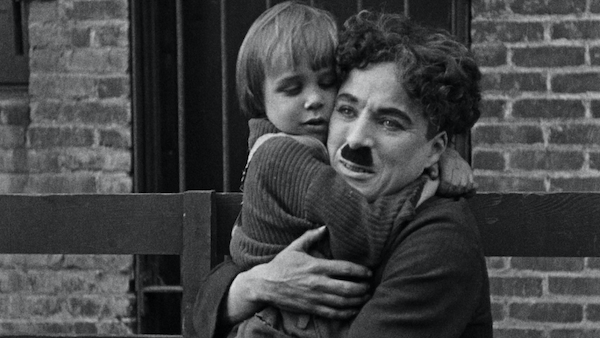
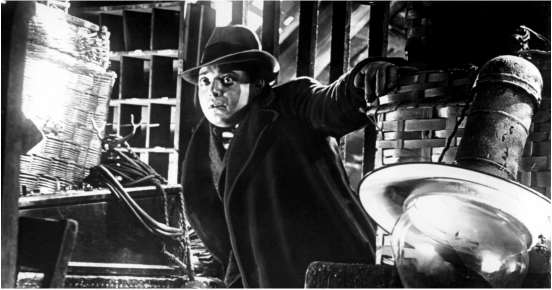
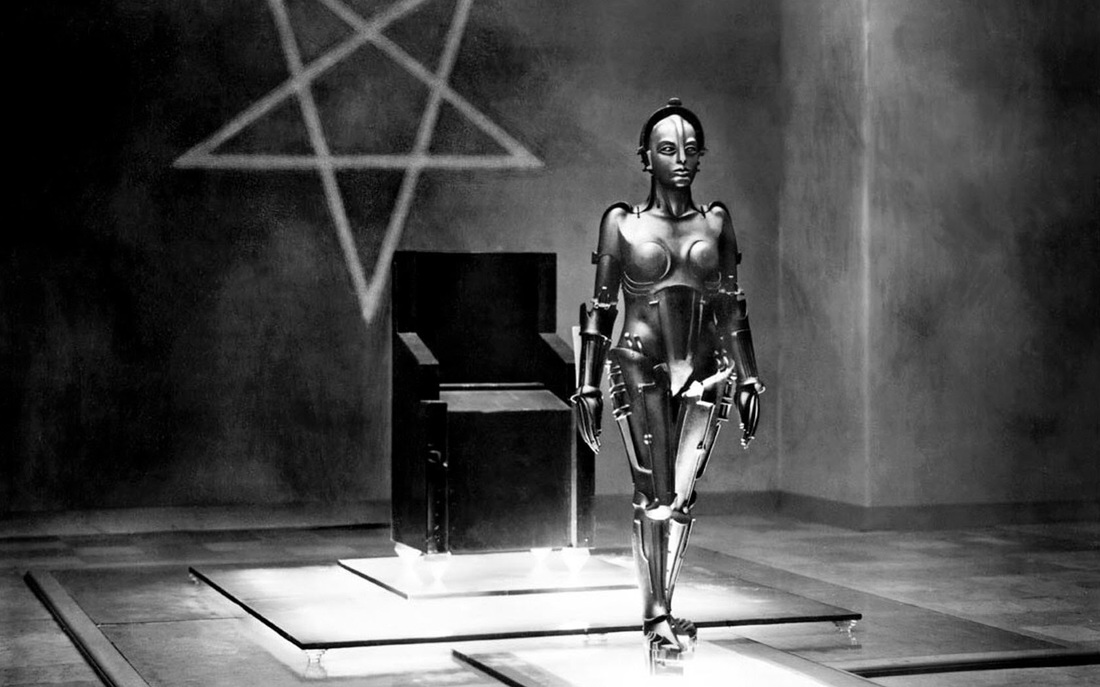
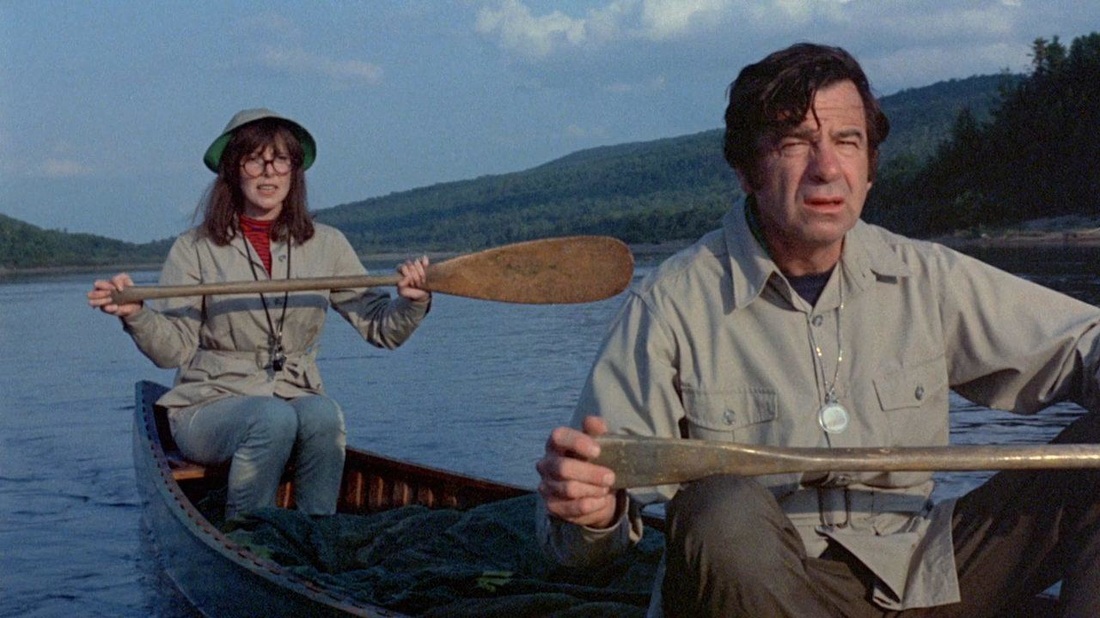
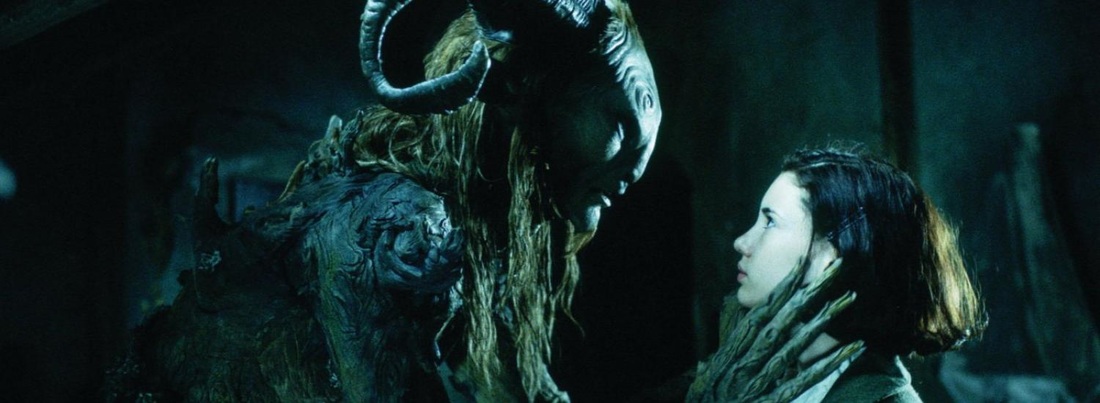
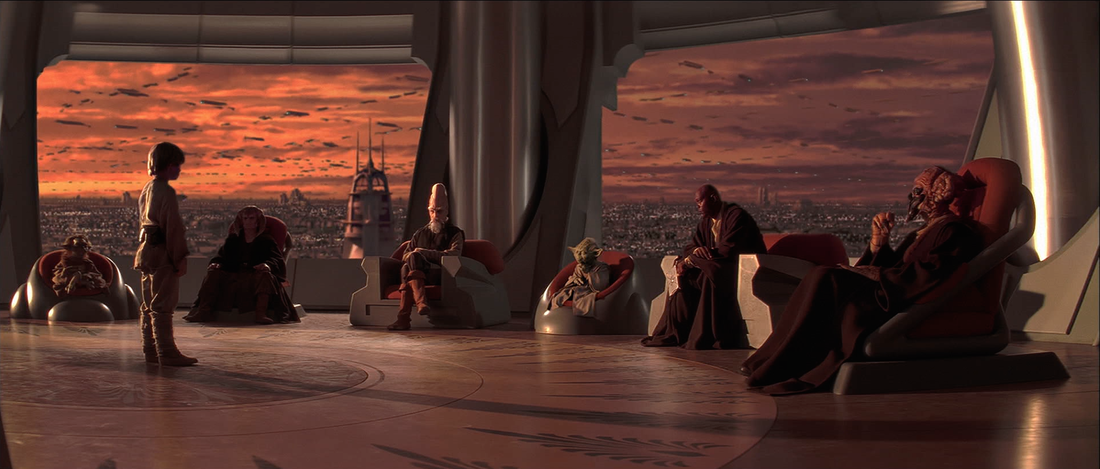
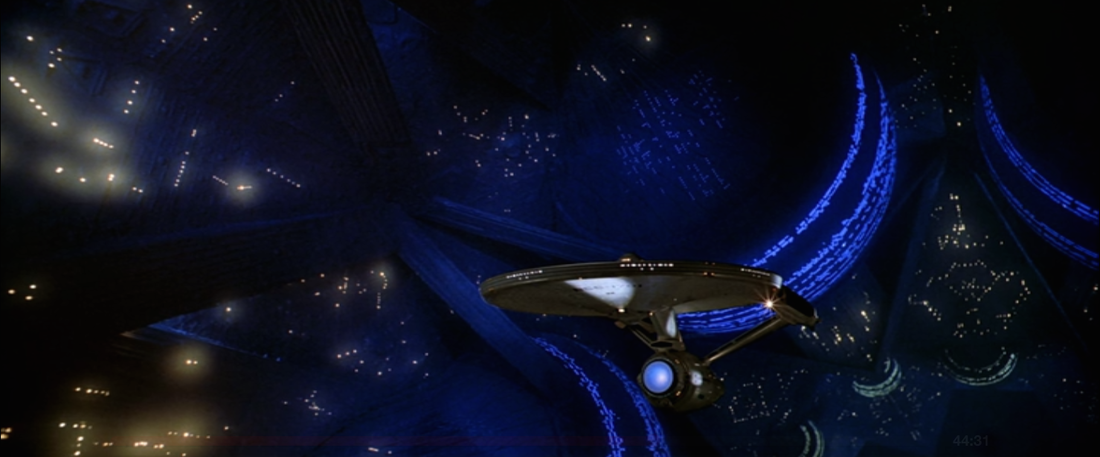
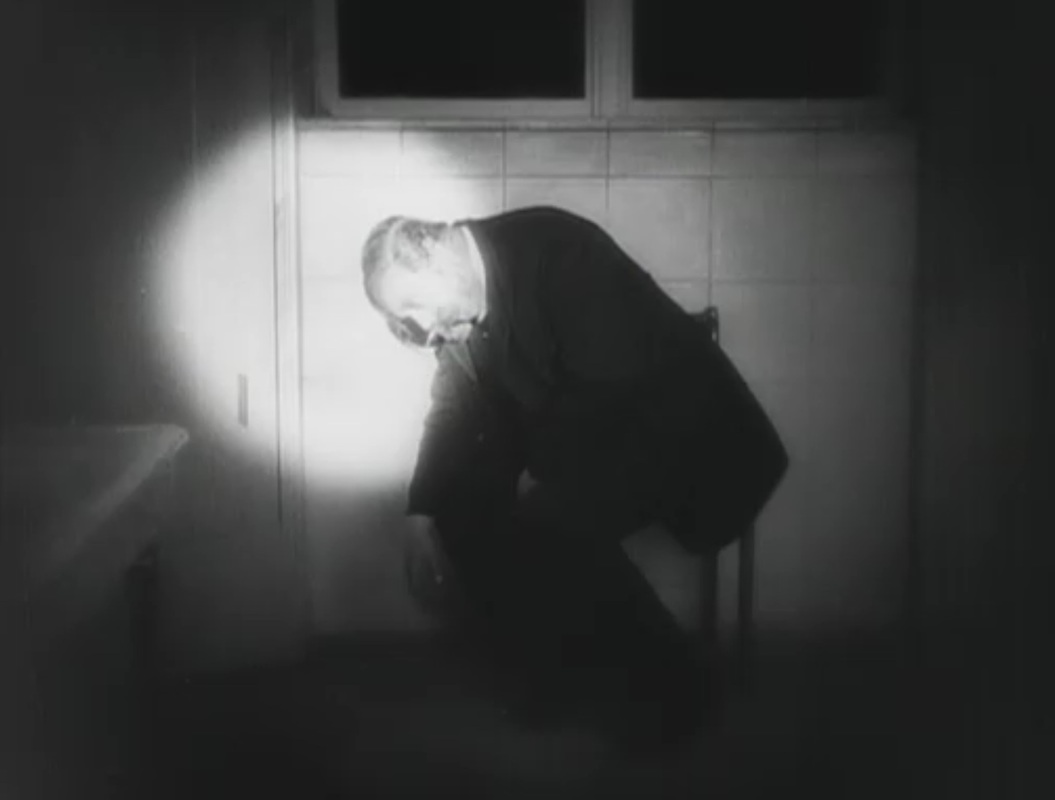
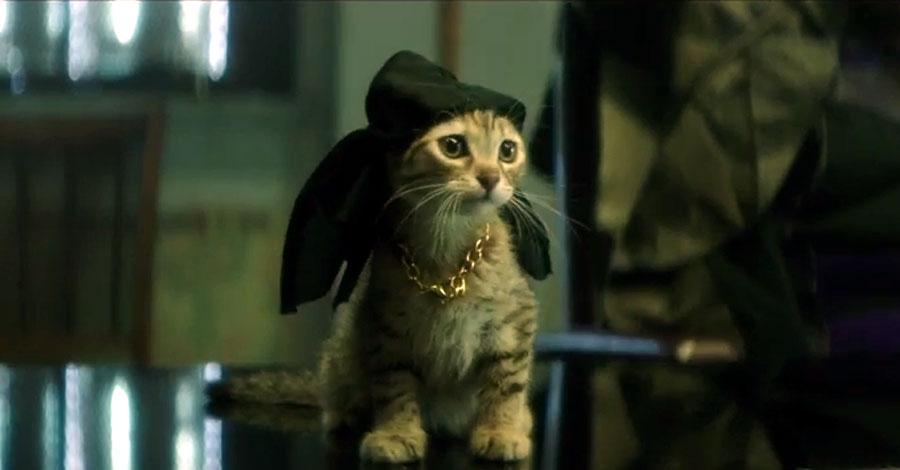
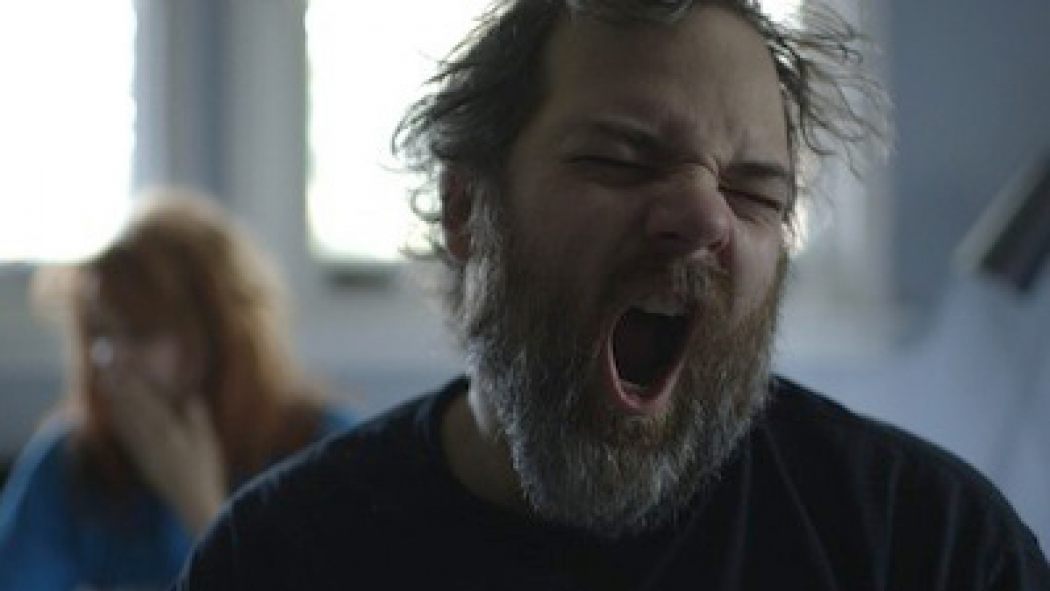
 RSS Feed
RSS Feed